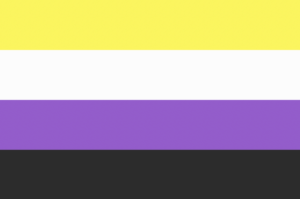With just 27% of all tech-related jobs, and less than 10% of Fintech leadership positions, currently held by women, the Fintech sector still has a long way to go to achieve gender equality.
To celebrate International Women’s Day (IWD), Cara Hayward, Director of Strategic Partnerships (North America), and host of this week’s episode of Payments Innovation, spoke to two Currencycloud colleagues, Fumbi Banjoko, Global Director of Sales Development, and Customer Success Manager Sarah Martin, about their experiences as women in senior positions in Fintech. They discussed the progress that has been made within the sector, and how we need to go further still to align with the theme of this year’s IWD and #EmbraceEquity.
Here are some key takeaways from their conversation:
When it comes to the personality traits that feed success, Fintech can learn from Martech
With a background in marketing technology, Sarah Martin had been accustomed to a sector that valued the soft skills of communication, connecting with audiences, and influencing opinions. When she moved into Fintech, she was struck not just by the male-dominated work environment, but by how assertive women needed to be to progress.
But is an assertive personality always right for the job? Could more be done within Fintech to follow Martech’s example of nurturing a range of behavioural traits, to encourage a wider diversity of personalities within the board room? And if less emphasis were placed on a single style of personality, would that lead to more women breaking through?
While the challenges women face vary from region to region, they all preserve the glass ceiling
Working in APAC, Martin’s experiences as a woman in Fintech are different from those of Fumbi Banjoko in EMEA and Cara Hayward in North America.
“In APAC, females are a bit more conservative,” explained Martin. “It’s just within our culture to always take the back seat and let a man take the lead in conversations; to have a more agreeable point of view and not come off too strong.”
In the UK, Banjoko highlighted the role economic background plays in the professional opportunities young people receive. In North America, Hayward pointed to a disparity between the large companies able to offer childcare and the startups which aren’t, to explain why many women don’t see startups as a viable career path.
Although the challenges vary across the globe, it is clear every region has work to do.
Women’s networking groups are providing a platform for progress
While self-doubt can hold women back from applying for more senior roles, women’s networking is helping to change that.
“I’ve noticed the rise of women’s groups and networks in tech,” said Banjoko. “And that community is organically building across different regions. There’s a shift coming. There can be many women in the room.”
Not only does women’s networking help to build a sense of community and collaboration, it can also connect younger women with those in more senior roles, who can act as mentors.
At Currencycloud, grassroots women’s groups are forming across all regions. In Europe, “We actually launched Currencycloud’s first Afro-Caribbean Employee Resource Group, Bl@CC, at the back end of last year, which is a great achievement to help nurture the black employees we have in Currencycloud and also try and attract more black talent,” said Banjoko. In APAC, women’s networking is fostering stronger personal relationships outside work, while in North America, external women in tech groups allow Currencycloud employees to share their own experiences more widely, while importing fresh ideas back into the organisation.
These relationships are already building the foundation for future generations of women, and the Fintech sector more widely, to #EmbraceEquity.
To ensure that you never miss an episode of Payments Innovation, subscribe on Apple Podcasts or Spotify.
Until next time!

